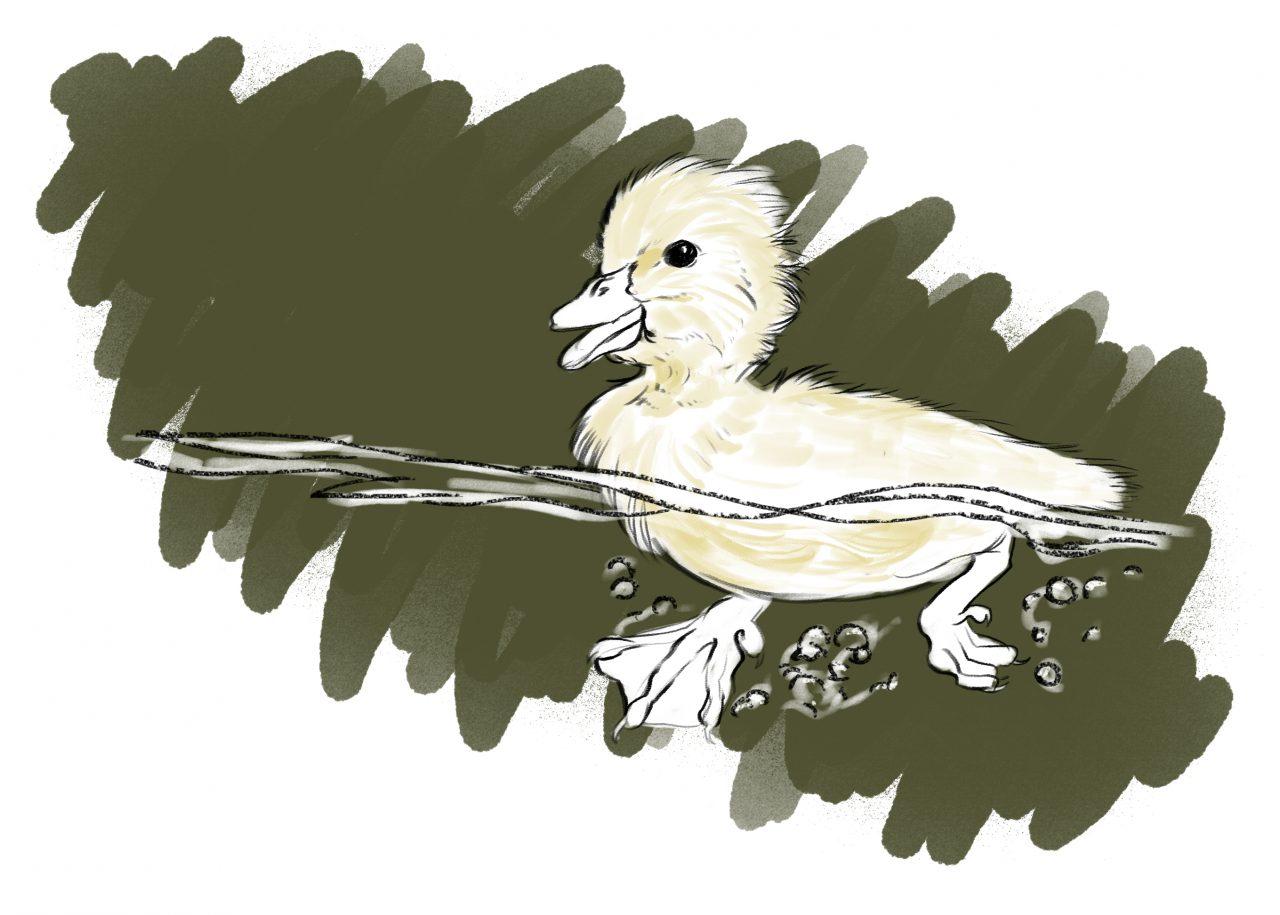Illustration by Andrea Nebhut
Picture a duck. It gracefully glides across the surface of a pond with a group of other ducks, all seemingly at peace. However, when you take a look below the surface of the water, you notice a much more frantic scene. The duck’s feet frantically paddle as the it works tirelessly to keep pace with the bunch. But, as this particular duck doesn’t take time to recognize, every other duck is doing the exact same. They’re all trying to get by in the same body of water, aren’t they?
As I’m sure is apparent, we are the ducks.
First coined by students at Stanford University, “duck syndrome” is a metaphoric phenomenon through which I’m sure many of us can see ourselves and our experiences in. According to an article written in the Stanford Daily, duck syndrome details an attitude where college students place a carefree lens over their insecurities, high piles of work and unachieved dreams.
Trinity may not be an Ivy League, or even a “top 10” school, but the expectations placed upon us by this institution come together in a similar pool of nightmare fuel that we paddle through everyday. Characteristic of spring semester, the pressures of planning for summer break, whether or not to study abroad next semester, applying to grant opportunities, who to live with during the fall, Greek orientation and much more are on our minds on a daily basis. All of this, of course on top of our classwork, culminates into the harmful student culture that “duck syndrome” critiques in the first place. While it’s great to see our friends succeed, at what cost does forcing ourselves through our own personal waves of insecurity ever seem justified?
Sometimes, it feels forced upon us to participate in this culture in order to stay ahead. The copious amounts of stuff that we’re given to do makes sense if we back it up with hours upon hours of caffeine-fueled study sessions. We pass each other on our ways to club meetings, office hours and team practices. We say we’re doing good. It makes sense.
It shouldn’t.
Though a personal sentiment, I imagine that my own experience within this system may not be isolated.
Every day, I discern how doing all this work contributes to the ways I see myself, my work ethic and how the two amalgamate into building my self-worth. Doing the work I’m prescribed is to self-succeed. To self-succeed is to validate the fact that I was brought here for a reason. If I fall behind — if I’m not at where this university expects me to be — I shatter.
If everyone does this, why is my situation special? The only solution: to work harder. The more I surround myself in books, in my computer screen and the dark halls of the library, the more I lose touch with the water, air and green leaves that lead me home at night. I am a student. I am not mine.
While college is intrinsically hard, it’s important to take time and realize that such a degree of difficulty doesn’t need to pass a certain threshold of stress and wear on our beings. Once we reach our limit, our bodies begin to crave the sole presence of the things, feelings and people that make us happy. At that point, it’s okay to slow down. We all need support in doing nothing, sometimes. Once we free ourselves from the pressure to be perfect, we can just be.
The aforementioned duck slows its feet down while the pack continues ahead. The water feels nice, still and free. Its wings flutter as the duck dries its feathers. The air feels nice. The sun reflects off of the water into its face and its eyes flinch. The duck continues to float and notice all that’s around it. Another pack quickly paddles by; the duck doesn’t move.






